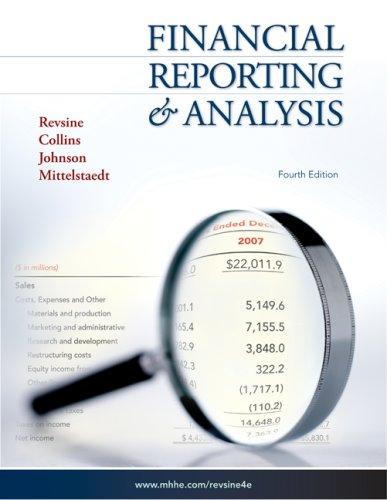Question
Could you sum this up: Ethics in finance and accounting: Editorial introduction gives the importance of the practice of ethical behaviors as it pertains to
Could you sum this up:
Ethics in finance and accounting: Editorial introduction" gives the importance of the practice of ethical behaviors as it pertains to finance and accounting. The need for ethics in these files is to ensure that certified public accountants perform their responsibilities with objectivity and integrity. Financial and accounting practices should be carried out in a legal, practical, and moral manner. Ethical accounting provides more helpful information that aids in sound financial decision-making.
Lack of ethics in finance and accounting results in criminal activities and the business having a poor reputation. The business' financial statements would be considered untrustworthy and useless (Mel, Rosanas, & Fontrodona, 2017). Stakeholders, including customers and business partners, would find it challenging to conduct business with an untrustworthy organization. An accountant who practices poor ethics is willing to break the rules for self-satisfaction. To have an effective system of checks and balances, an accountant cannot be given too much control with little oversight. Damage to a business's reputation is costly to an accounting firm that depends on that reputation to remain in business. Arthur Anderson LLP failed as a result of the Enron scandal. The scandal's impact, along with the findings of criminal complicity, ruined the company's reputation (Carnegie & Napier, 2013).
Finally, the article reminds us that humans perform business activities. Humans have the choice to either perform their business transactions ethically or unethically. Accounting and financial professions have to follow the ethical standards that regulate the type of business they conduct, whom they serve, and how they use their business practices skills. These standards include the legal parameters and guidelines set to protect the integrity of the entire industry.
"Ethical climate social responsibility, and earnings management" examines the relationship between corporate accountants' perception of their businesses' climates, the perception of the importance of ethics and social responsibility, and the earnings management decisions. Unethical accounting practices are typically driven by management pressures, the issuance of bonuses or incentives for performance, and greed on the part of the accountant. Some business management creates an environment of competition that leads to unethical behaviors. Some accountants manipulate the reports or books for their gain. They fail to see the relationship between their actions and punitive outcomes and believe that circumstances are the driving forces to their unethical behaviors. The lack of consequences for unethical behaviors is a catalyst for employees to continue their unsavory practices.
Many accounting companies have used unethical practices by falsifying information and presenting it incorrectly (Shafer, 2015). Suppose an accountant perceives a business that it represents as willing to bend the rules to get ahead or make itself look more attractive on paper than it is. In that case, they are likely to follow suit in order to please the company it represents. Others may not see their behaviors as unethical, rather seeing them as creative instead. They use their knowledge to manipulate figures on the financial accounts. These practices focus on changing results to maximize or minimize results, r presentation of financial statements without them being mutually exclusive.
Earnings management uses accounting techniques that produce financial statements that present an overly optimistic view of a company's business activities and its financial position. Earnings management takes advantage of how the rules are applied and creates statements that inflate a business' earnings (2015). Although most managers view this behavior as unethical, earnings management's ethicality lies with a human who is capable of ethical decisions. At one end of the spectrum, deliberate manipulation of earnings is seen as misleading, self-serving, and fraudulent. On the other end, generally accepted accounting practices allow managers some discretion in reporting decisions. Many managers believe that their discretion to achieve earnings objectives is vital to doing business and protecting their shareholders' interests (Lee, 2017). Company culture, particularly the tone from management, has a considerable impact on earnings management perception.
Step by Step Solution
There are 3 Steps involved in it
Step: 1

Get Instant Access to Expert-Tailored Solutions
See step-by-step solutions with expert insights and AI powered tools for academic success
Step: 2

Step: 3

Ace Your Homework with AI
Get the answers you need in no time with our AI-driven, step-by-step assistance
Get Started


